The ferry from Rosso Mauritania jolted up against the landing planks on the shore of the Senegal River in the grubby town of Rosso in Senegal. The town name Rosso is used both on the Mauritania and the Senegal side of the border. Trucks, cars, motorbikes, donkey carts, goats and people heavily laden with goods attempted to disembark the ferry, once it had docked. It was a mildly chaotic scene with uniformed men giving directions only to change their minds a few seconds later as to who should disembark first. The scene was being watched by the hundreds of people waiting patiently to board the ferry back to Mauritania. The heat was unrelenting with not a breath of wind.
Enlarge

Advebturouspirits
Customs was due to close for the day when our English speaking hustler arrived with all our documents minus my passport. Another assertive conversation between him and Tom took place before he headed back to get my passport. Now negotiations began in earnest as to how much we were willing to pay for his services. We knew there was a legitimate cost of 10Euro to be paid, we also knew that no one gets through this border crossing with out expenses (bribes and scams) so after much tough haggling and arguing they had settled on a payment of an additional 50 Euro. We had been preparing for worse so felt fortunate that was all we were made to pay.
Enlarge
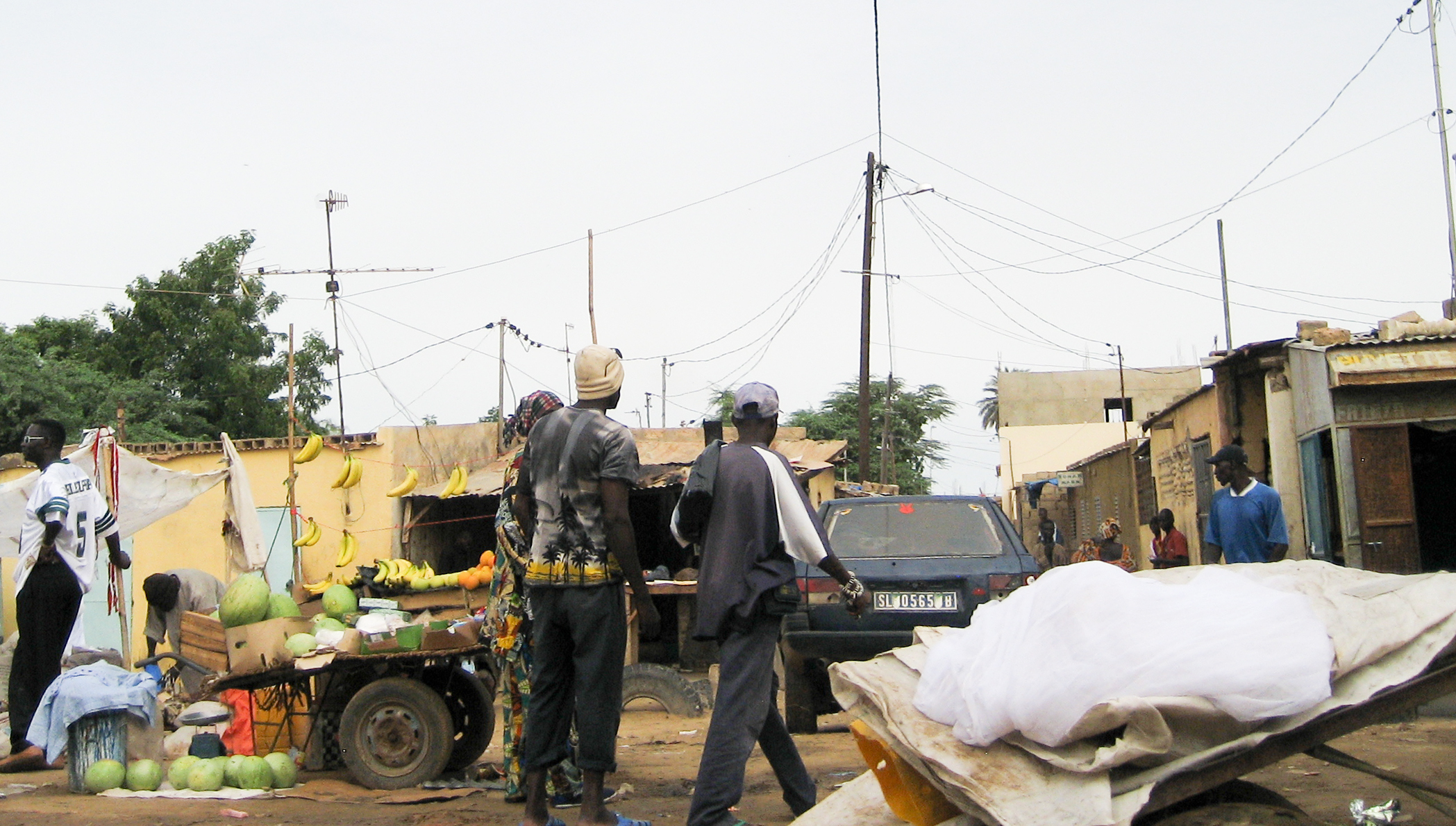
Adventurouspirits
It was 1700 neither of us had eaten all day, we were exhausted and wanted to make the 100km to St Louis before dark, so headed off south. Joggers and cyclists weaved their way through the darken streets of St Louis as we entered it. It reminded us of all the Ethiopian runners we had seen outside Addis Abba.
We weaved our way through the traffic, hawkers, revelers, goats, pigs and rubbish blocking the road. It was if everyone in St Louis had come out onto the streets to party. It was noisy and boisterous but finally we found ourselves headed out of the city and down a little track heading for a campsite. The only living thing now, on the track were large crabs.
It had been a long hot day and we had a cold shower something to eat and headed for bed and sleep.
Enlarge
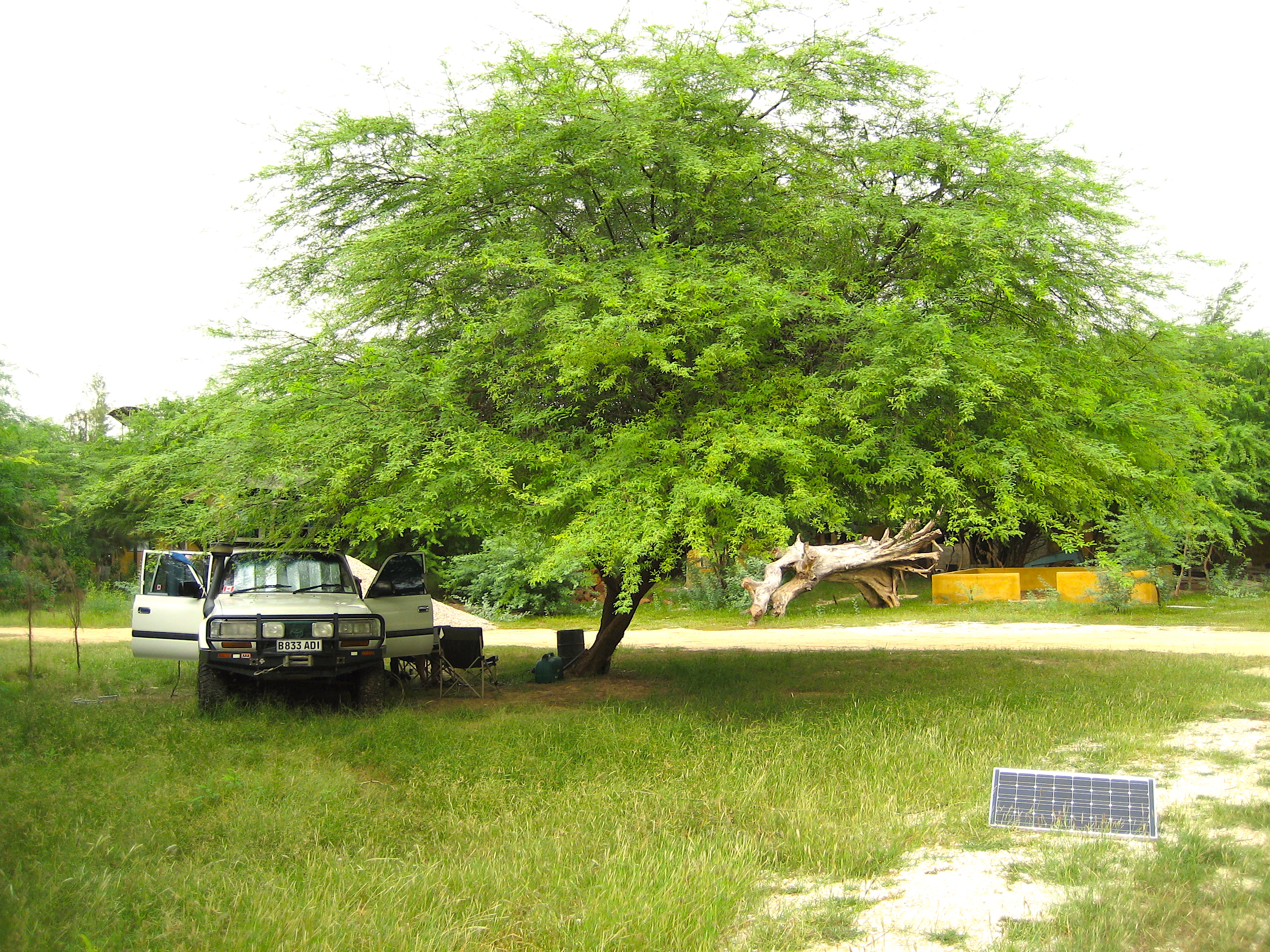
Adventurouspirits
Dakar a city made famous for the Paris to Dakar Rally. The last rally was cancelled due to security concerns and it seems the rally is quite controversial on this side of the world due to the damage it does to the environment. We headed for Lac Rose (Retba), a name given to it for the red colour it gets from the waters high mineral content, where the rally actually ends and now it stands as a desperate desolate little town with tour guides and vendors struggling to make ends meet waiting for the tourists. We drove around the lake on the gigantic sand dunes bordering the Atlantic, to a camp and restaurant Cafe Bonaba but it too was deserted and closed. So we headed southwards taking in the local scenes.
Enlarge
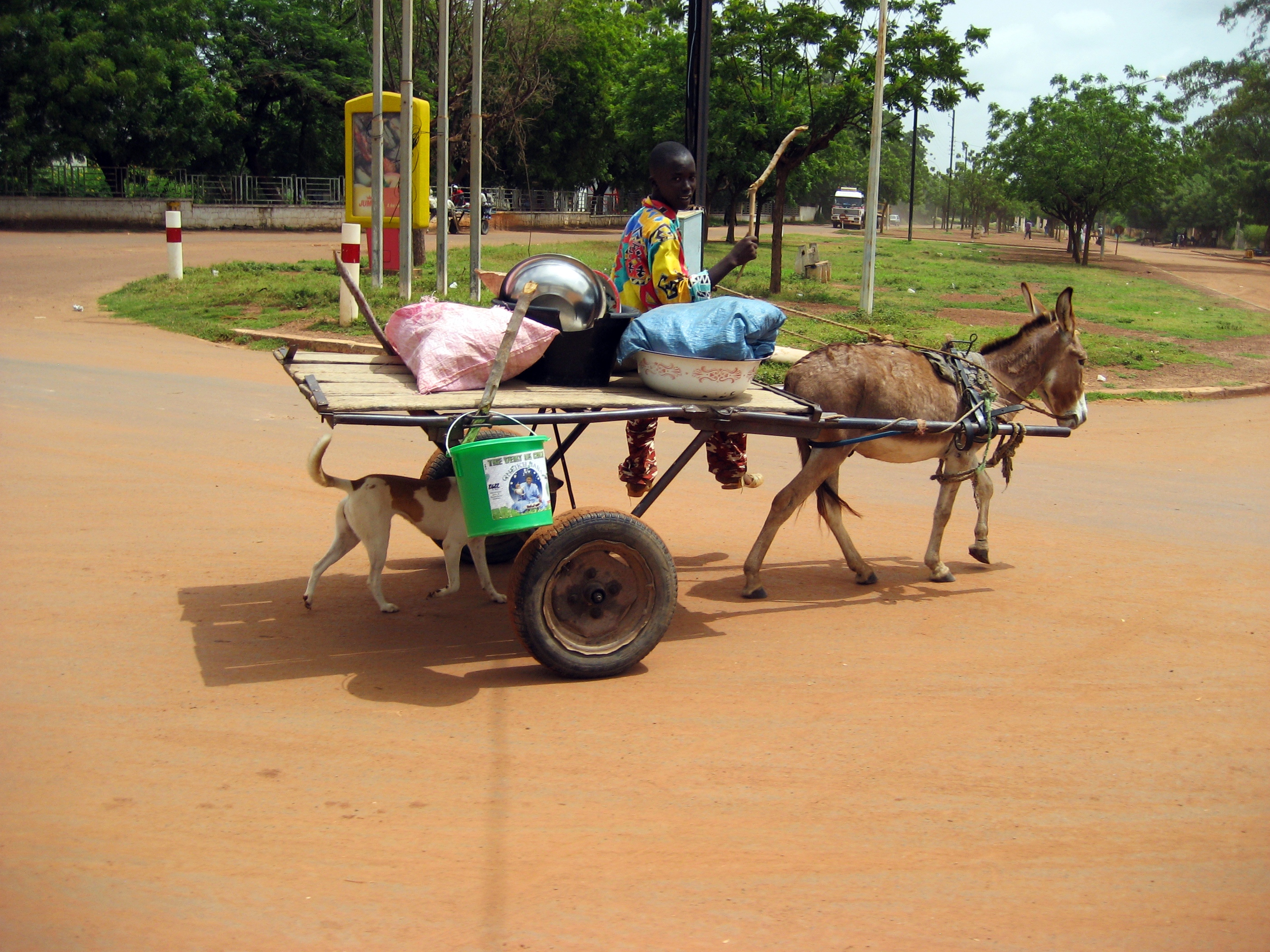
Adventurouspirits
Enlarge

Adventurouspirits
Enlarge
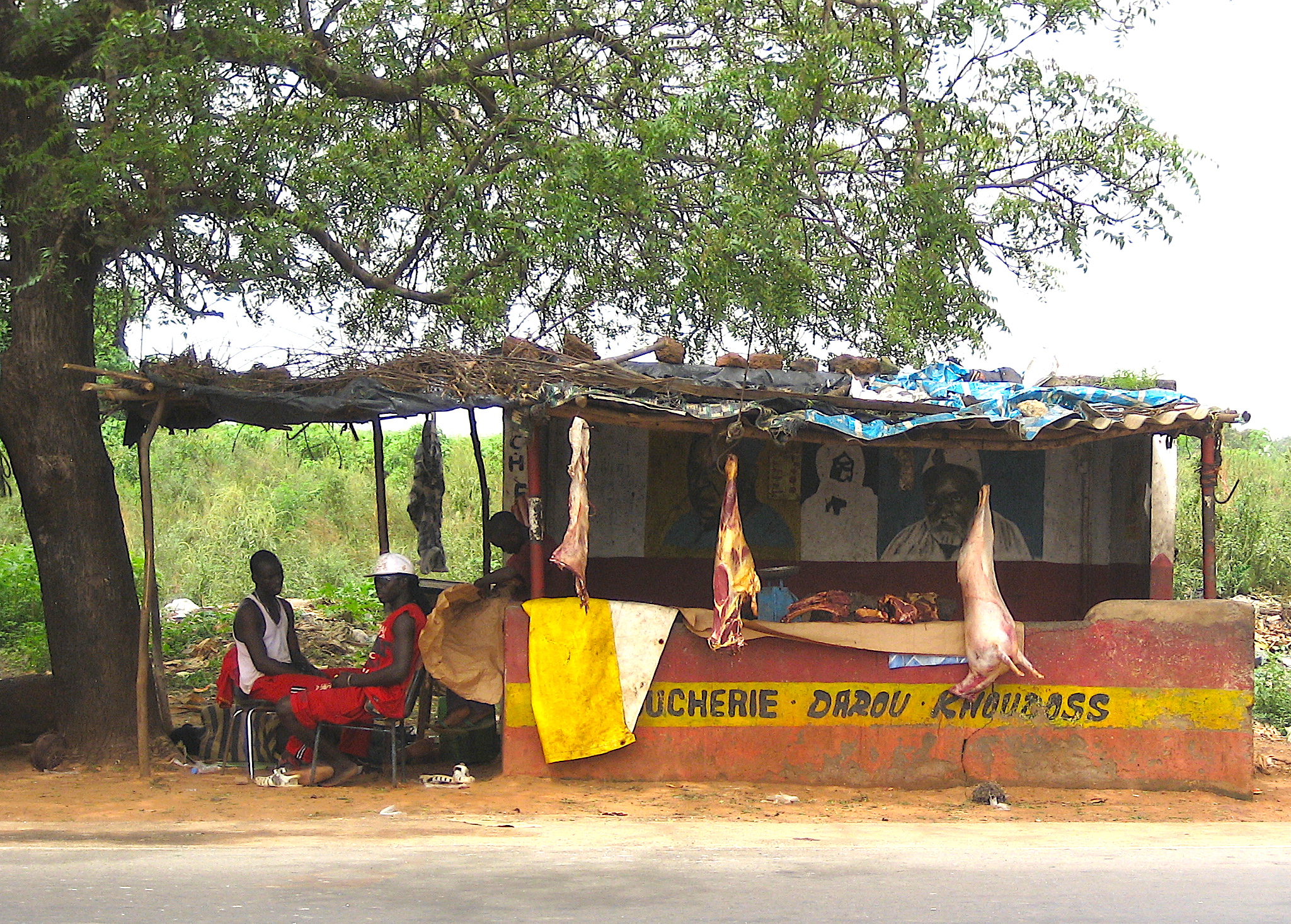
Adventurouspirits
It was time to treat ourselves to an air conditioned room with a shower, so we headed to Toubab Dialo a little fishing village south of Dakar. We spent a wonderful evening on the beach with the friendly locals, watching the fishing boats coming ashore, women sorting out the fish, children playing and several football games being played with great enthusiasm. Soon we were asleep in our air conditioned room at the Sobo Baba Hotel a Gaudi like fantasy world built by a French artist, not cheap but oh so wonderful.
Enlarge
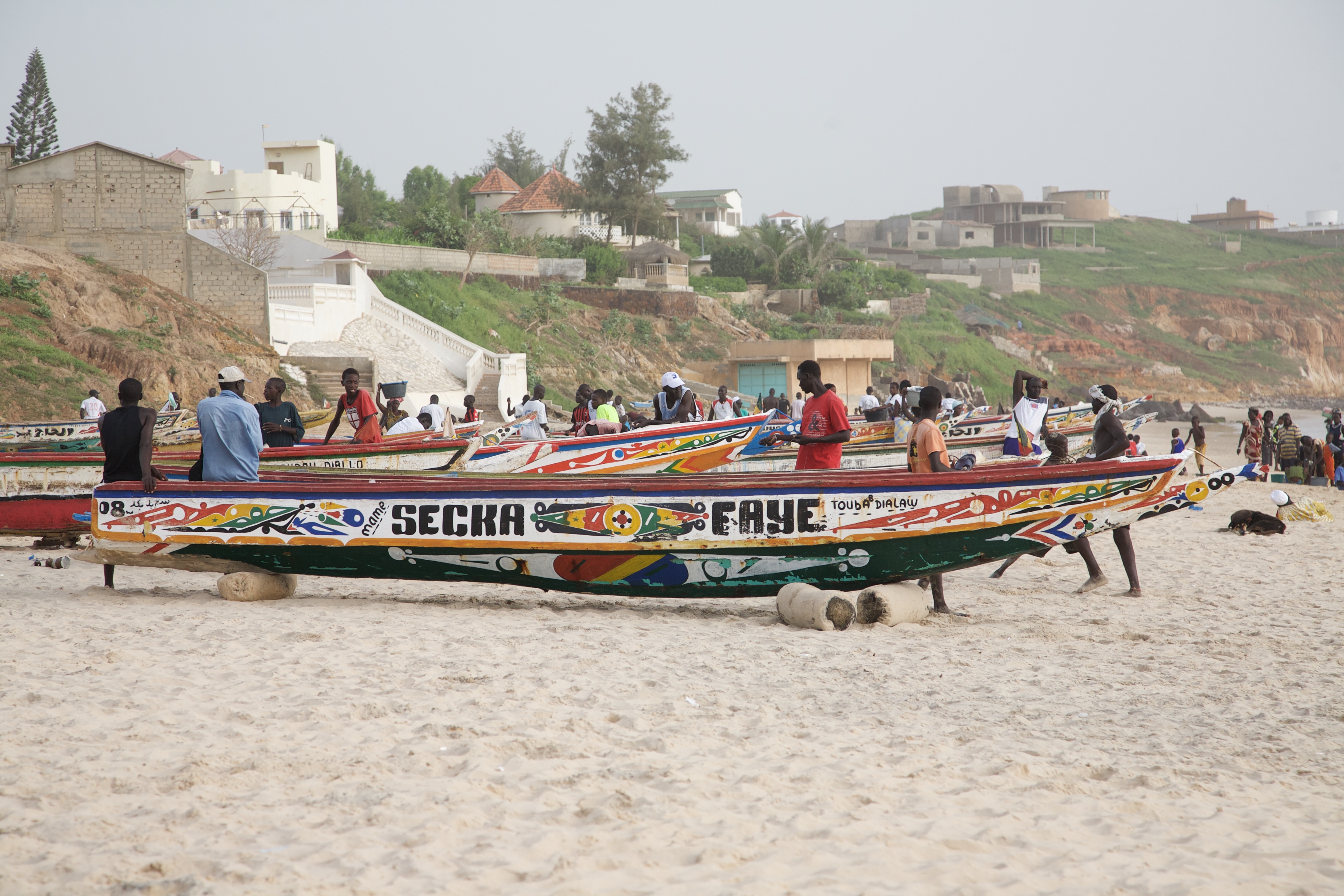
Adventurouspirits
Enlarge
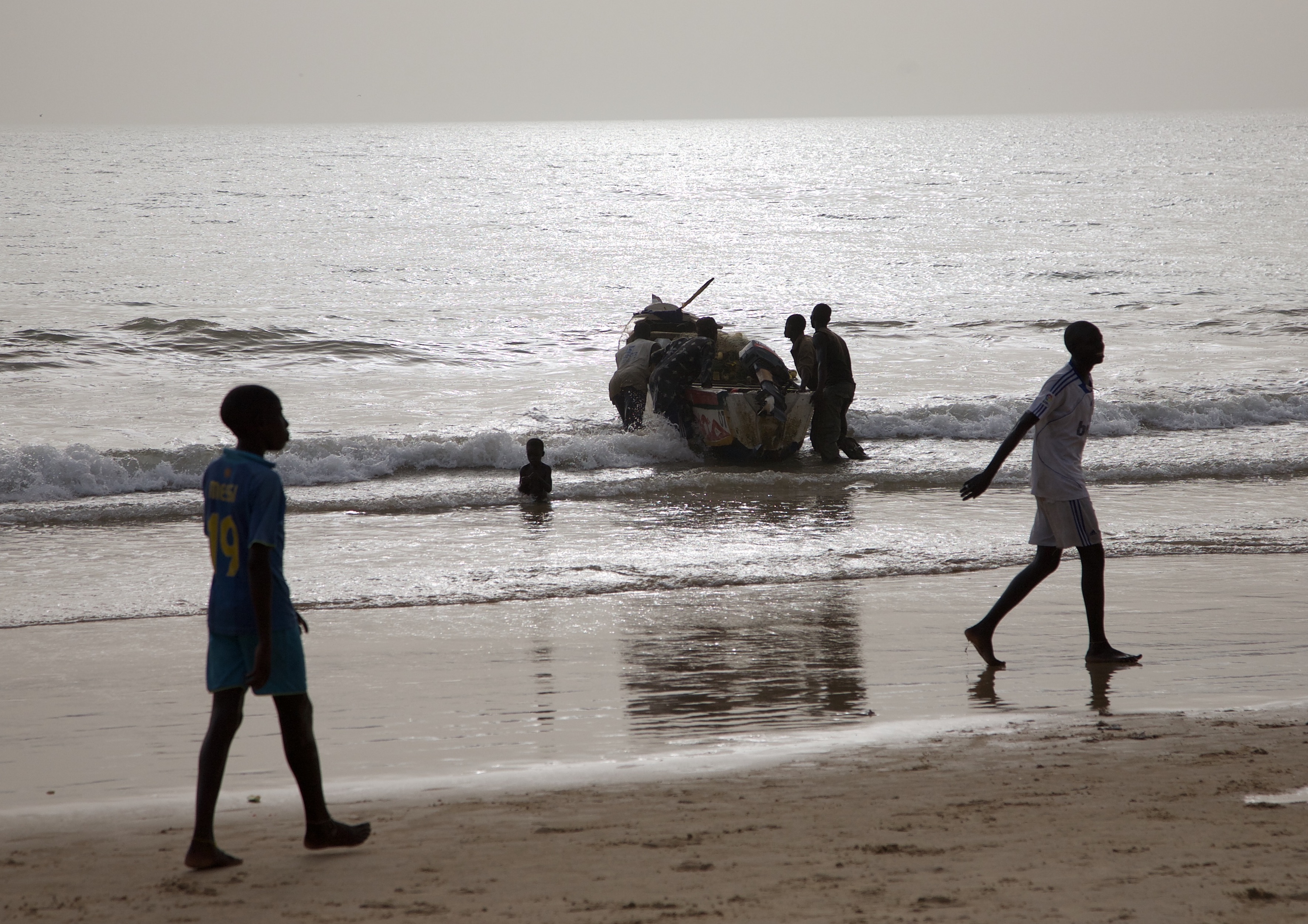
Adventurouspirits
Enlarge
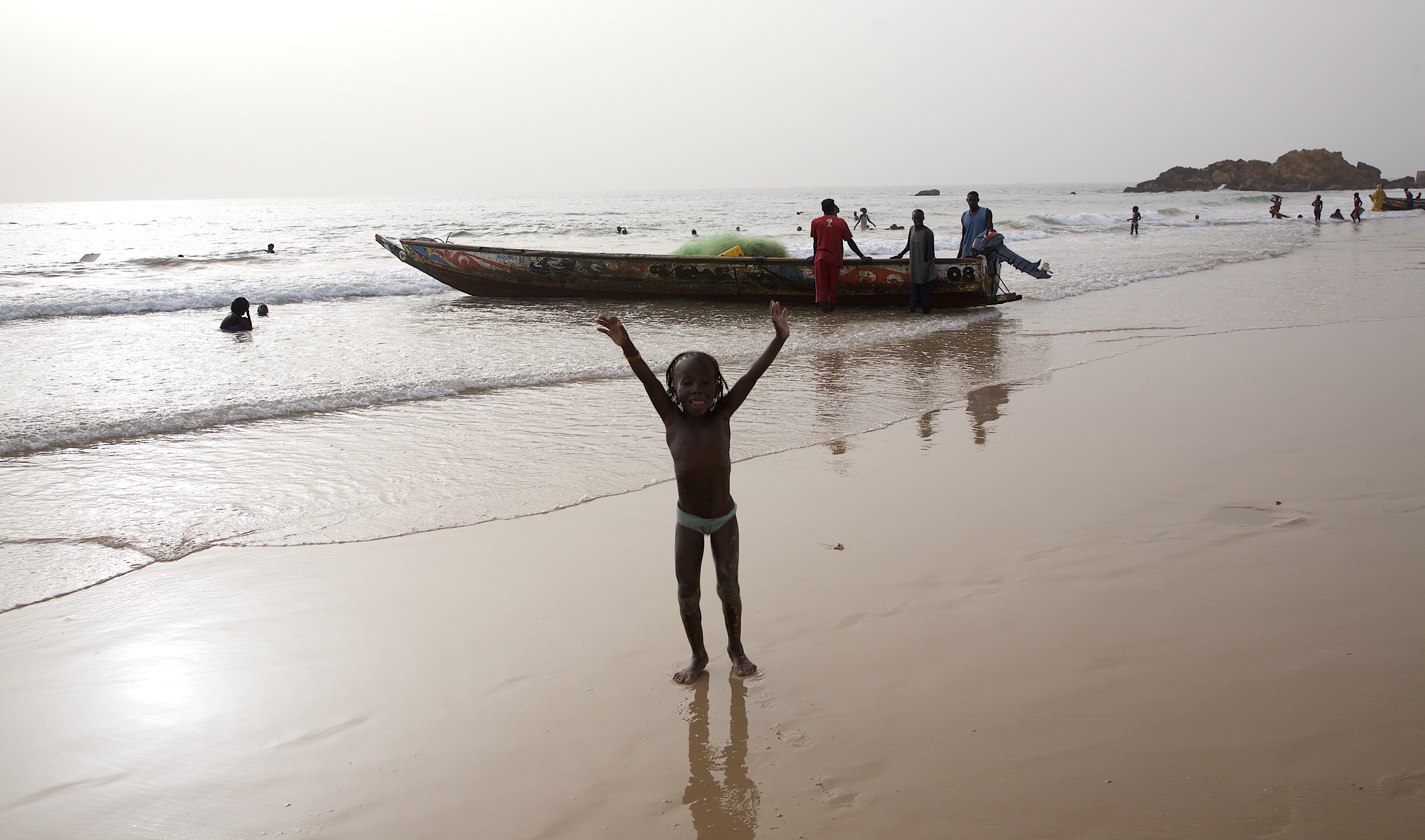
Adventurouspirits
Enlarge
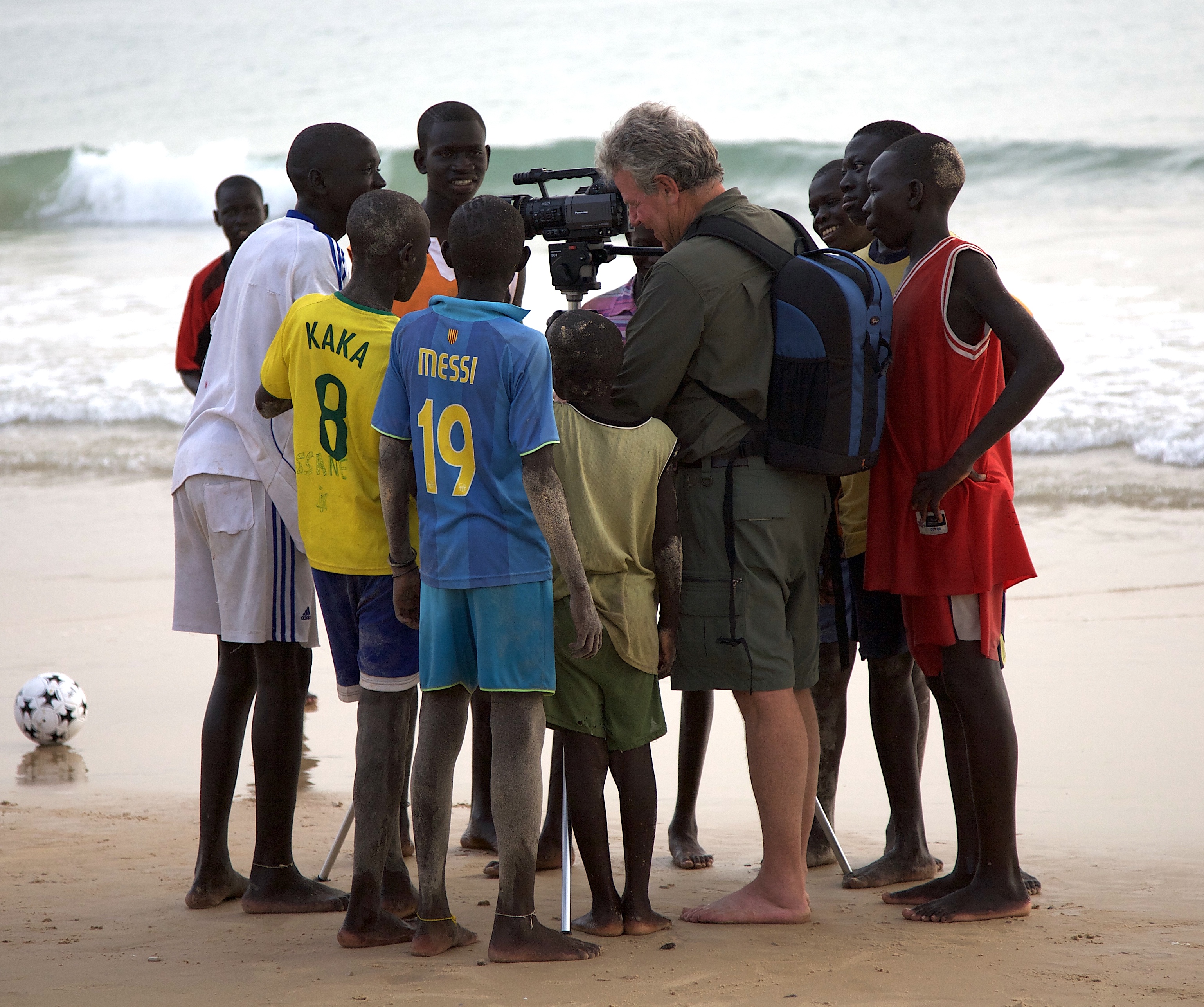
Adventurouspirits
Enlarge
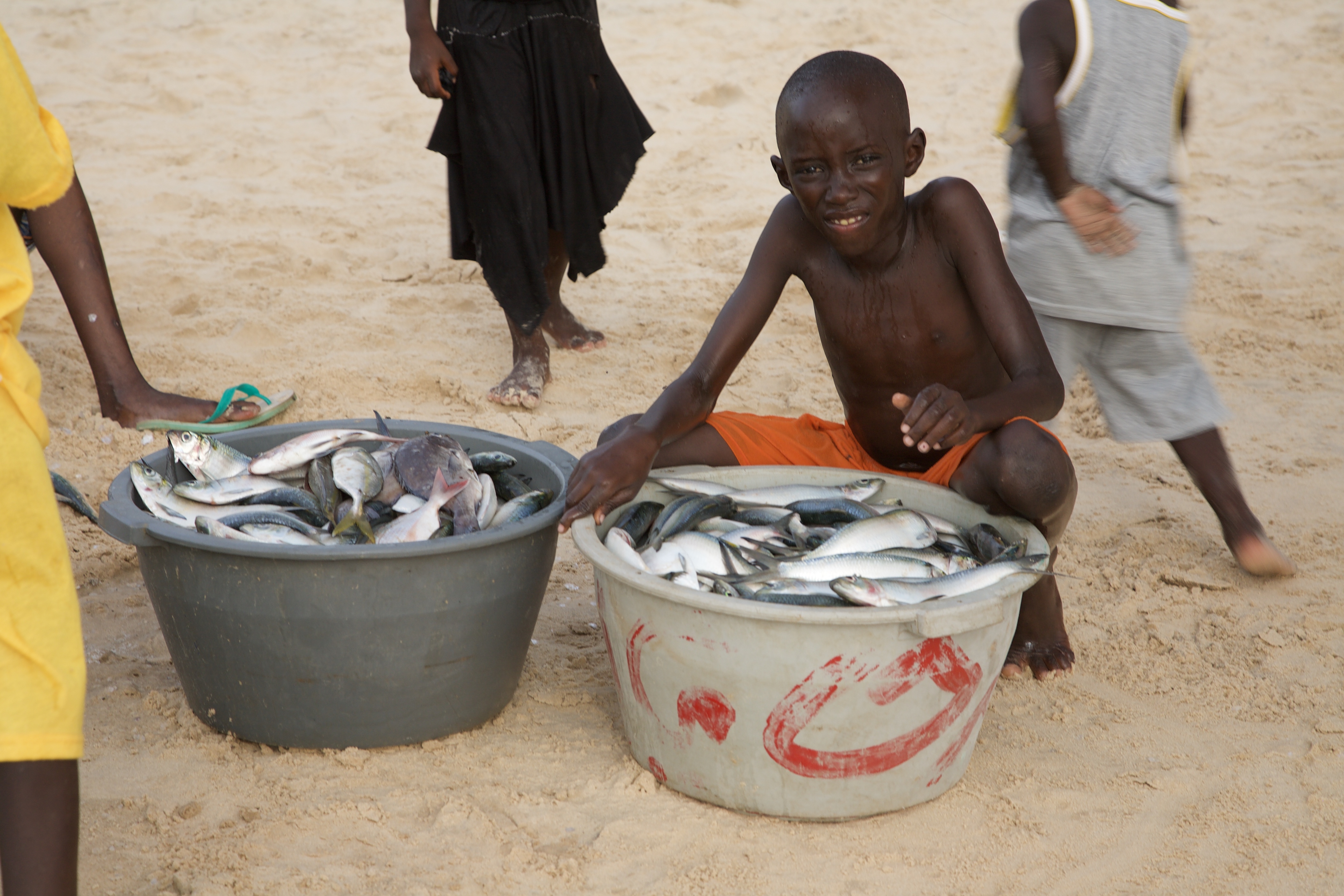
Adventurouspirits
Enlarge
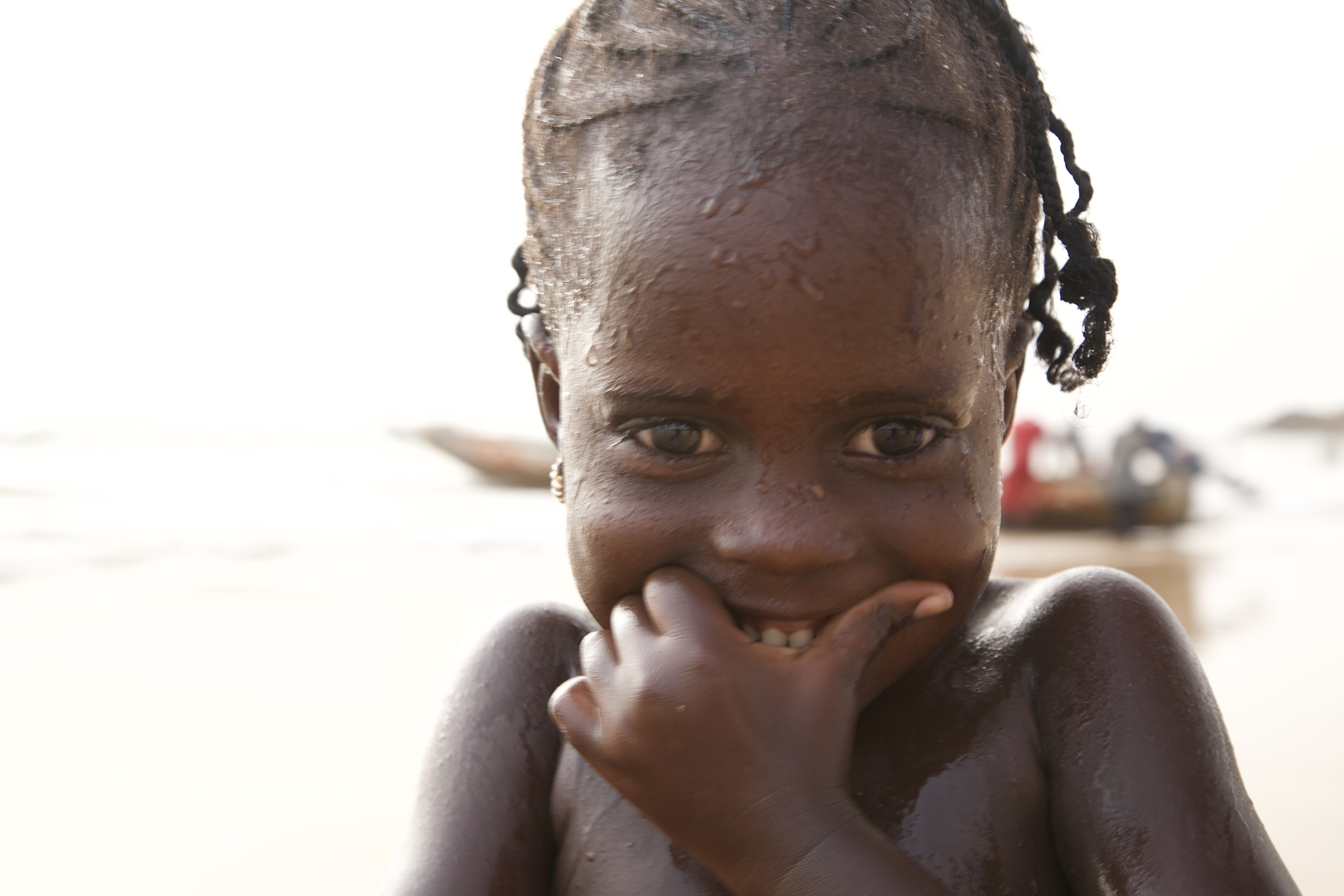
Adventurouspirits
After hours of research and endless discussion we decided to deviate from our original plan of heading south into Gambia, and rather head due east towards Mali. This meant a two day drive over some of the worst roads that West Africa had to offer. We headed out early hoping to make the roughly 400 kms to Tombacunda in one day but the ruts, traffic, suspension eating potholes, broken trucks and choking red dust made the going slow.
Enlarge
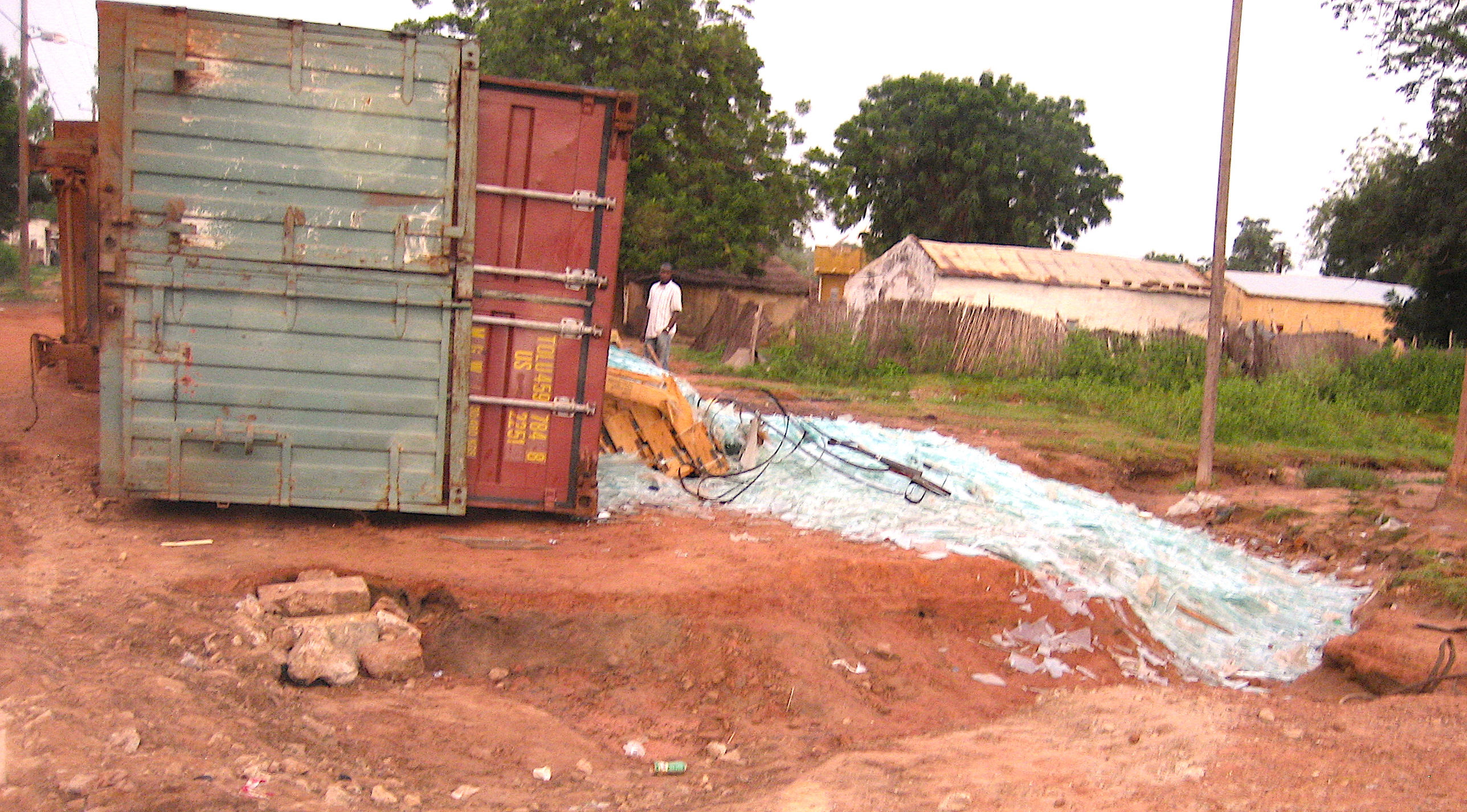
Adventurouspirits
Enlarge
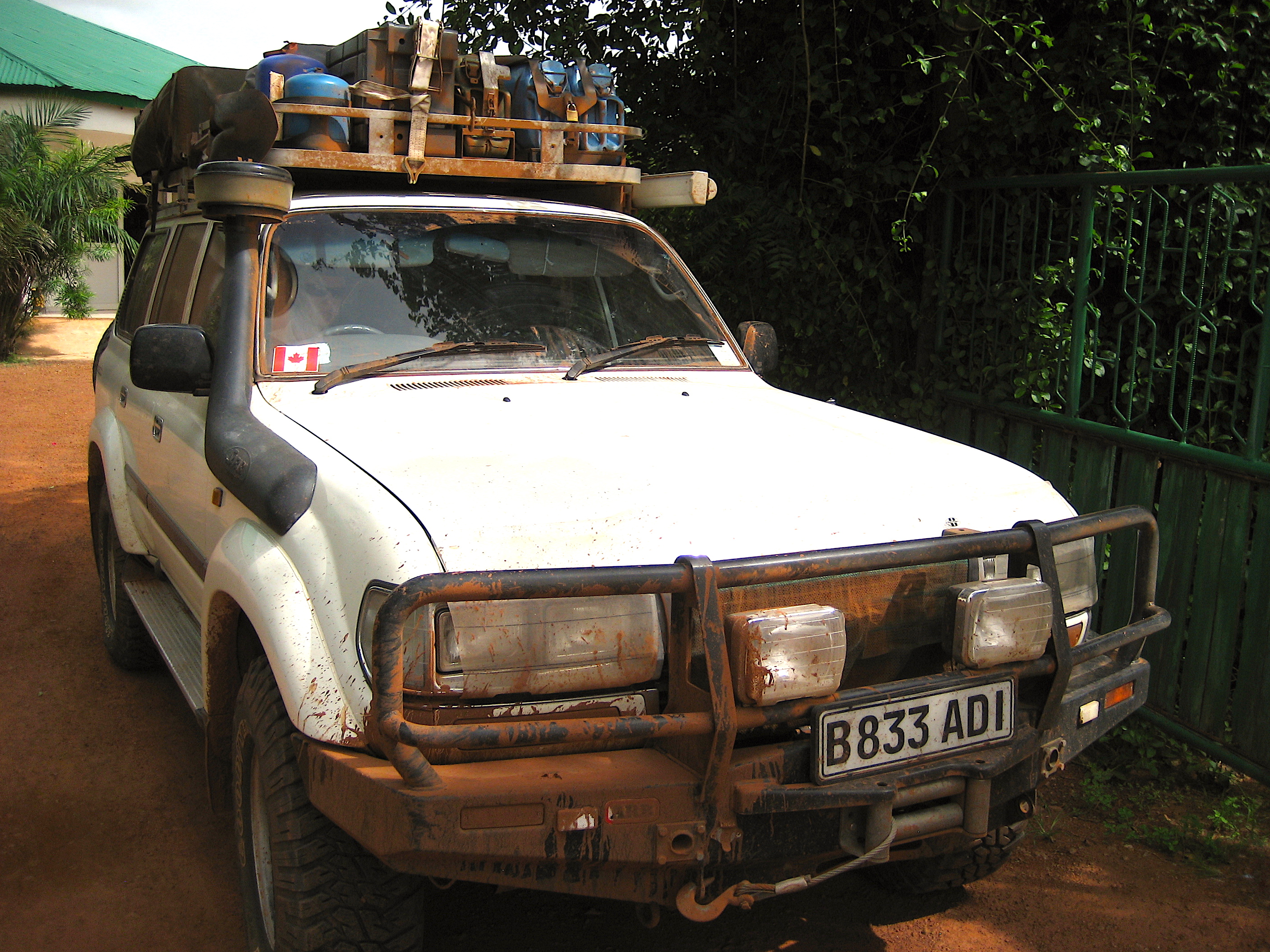
Adventurouspirits
The sun was starting to set and the GPS was still estimating our ETA at 10:30pm. One of our golden rules is never to drive in the dark unless absolutely necessary, so we were very pleased to see a sign advertising “camping” and pulled in to check it out. It seemed pleasant enough and so we pulled under a large leafy tree and set up camp.
Enlarge
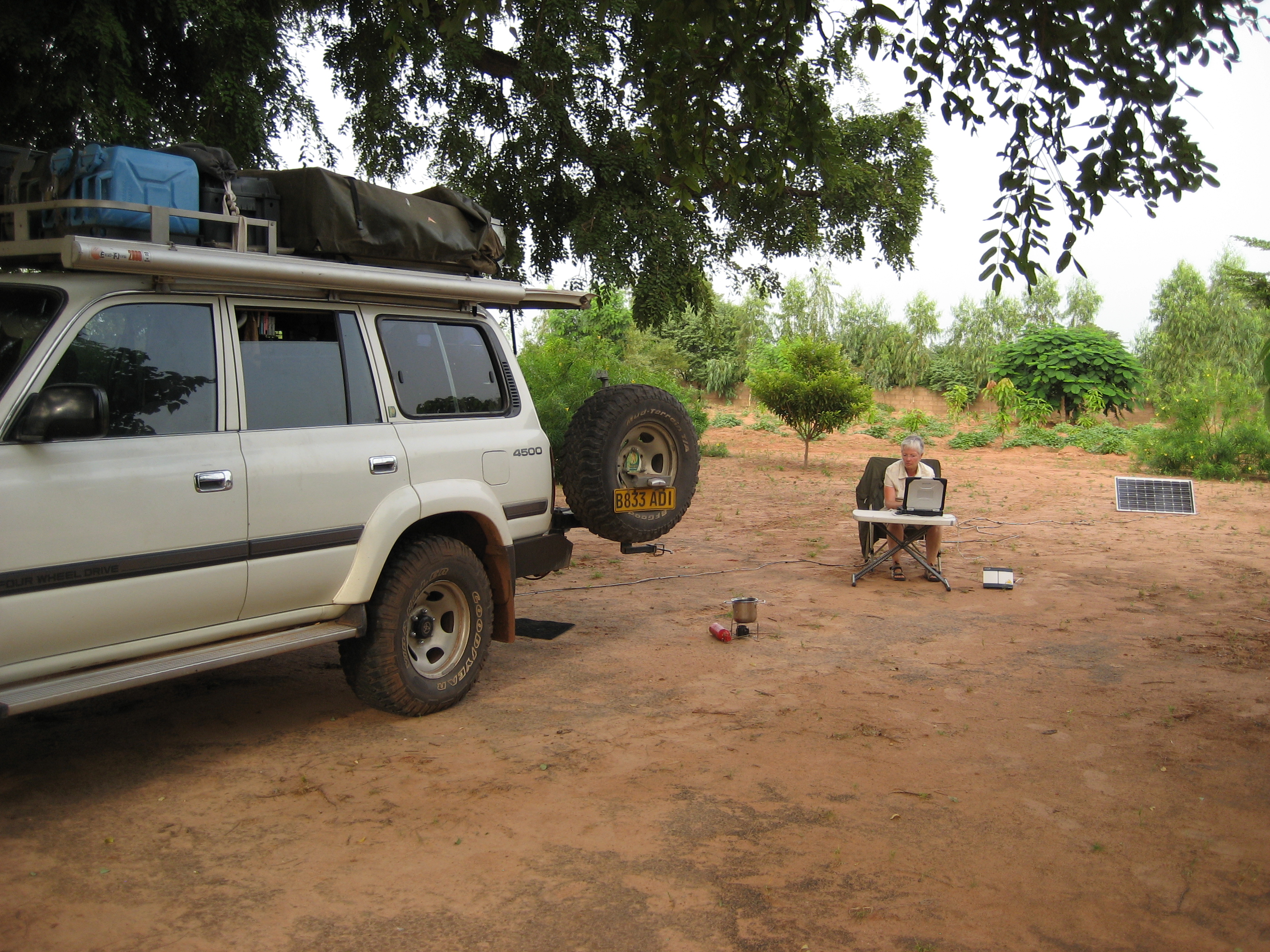
Adventurouspirits
Despite it being late afternoon the heat was unrelenting. We tried everything to cool off and yet the sweat was just dripping off us, huge drops creating puddles around our feet and drenching our clothes. All of this mixing with the DEET we had liberally applied to ward off mosquitoes, making us sticky to the touch. Sleep would be impossible under such conditions. We decided to take one of the air conditioned rooms they had offered us earlier; the $20 extra it would cost us seemed worth every penny.
The manager immediately sprang into action and asked me for payment so the he could purchase fuel for the generator and then he requested that I take the cruiser to the generator shed so that he could use its battery to start it up. (He couldn’t speak English and I can’t speak French so it made for some hilarious hand gestures). Well we all climbed in, 9 locals arrived to work on the mechanics, some one else arrived with a car that must have been recovered from the local scrap heap but was still functioning and had a functioning battery. I provided tools and light and after some twenty exhausting and sweaty minutes the generator coughed a few times, hesitated and then sprang into life. We all cheered loudly as the camp became the only illuminated complex in the dark African bush.
Just because I was the guest didn’t mean that I was not expected to pitch in. That’s the way the Africans do it. Every body helps everybody – it’s the only way to survive. The sense of community to get power going made the cool air coming from the buzzing conditioner all the more refreshing. Before too long we were both sleeping soundly.
Enlarge
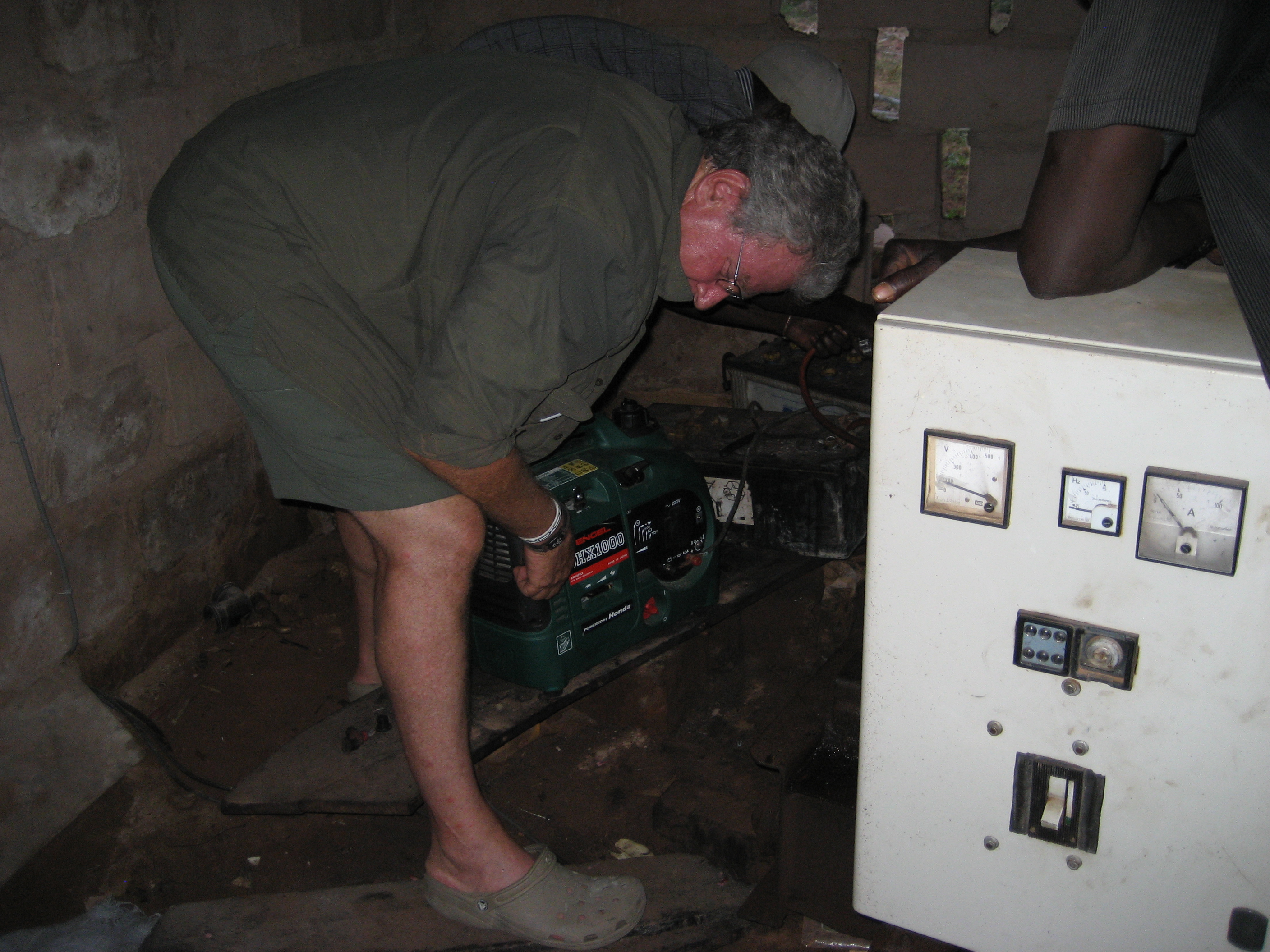
Adventurouspirits
We headed for Senegal’s major national park, the World Heritage Site Niokolo-Koba, spanning about 9000 square km. Although the park is officially open from December to April it can still be visited during the rest of the year. Driving towards the park area we wondered how many animals we would be able to see because of the dense vegetation and high grass. We planned to stay at a campsite and lodge located on the Gambia River which runs through the park, however when we arrived there the river Gambia was flooded and the campsite was 2 feet under water. We were still able to stay in a cabin on higher grounds and it was a pleasant evening. The trees and bush were full of chattering birds, monkeys swung through the trees and frogs croaked. However we realized that going to the park would difficult with the river in flood and because of the dense vegetation there would be minimal chance of seeing wild life. We made the decision to head for Mali rather than continue to the park. The locals tell us that West Africa is having more rain than it has had in 30 years, and we have certainly experienced a lot of rain and floods.
Enlarge
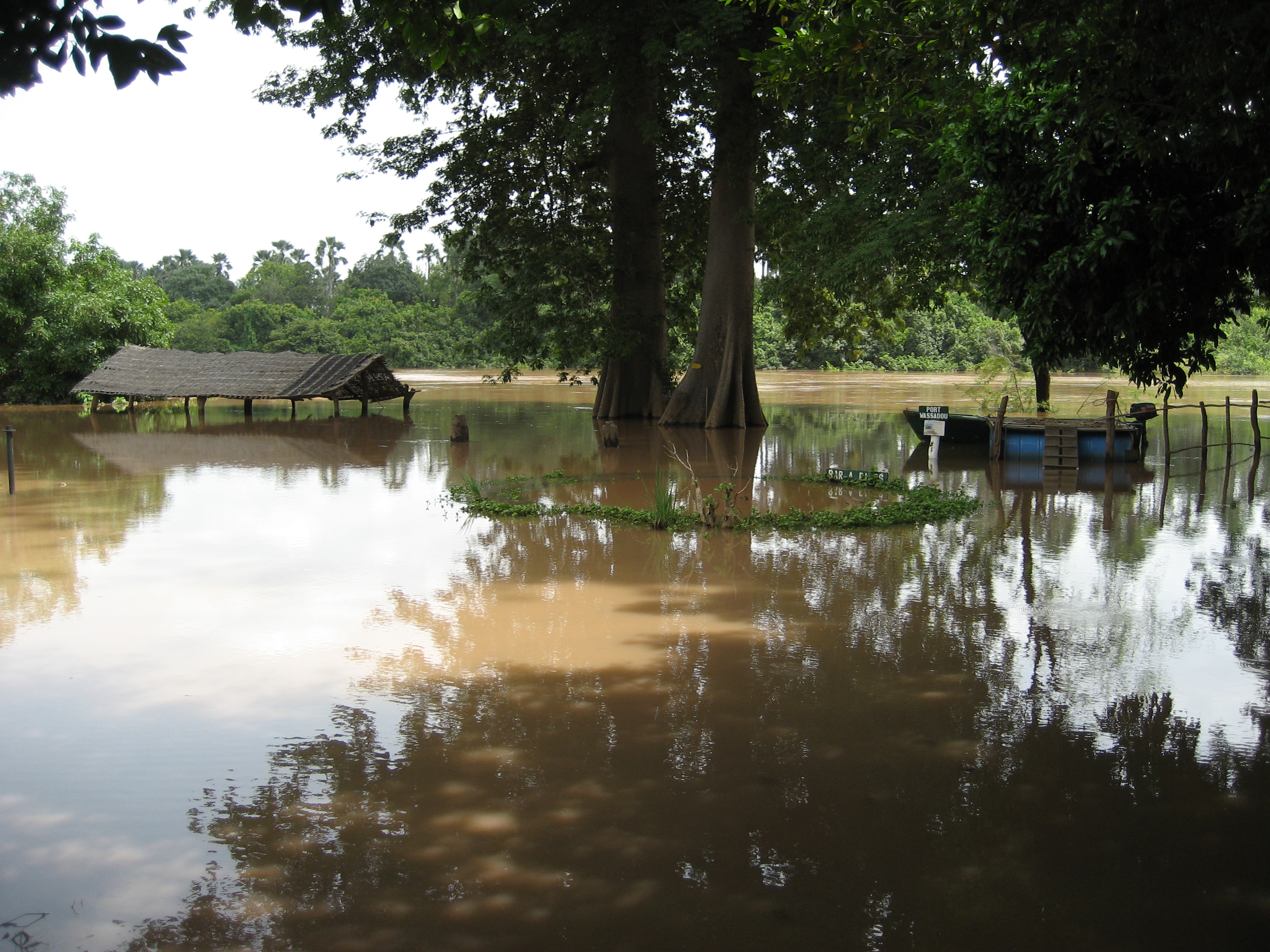
Adventurouspirits
We headed for the Mali border town of Kayes which has the distinction of being the hottest town in Africa as it is surrounded by iron rich mountains which retain and radiate the heat down onto the town turning it into an oven. I wondered if it could possible be hotter than Rosso.
